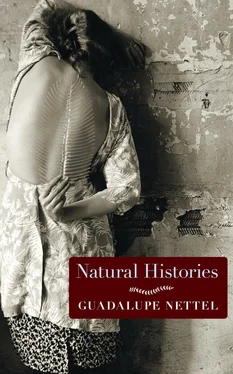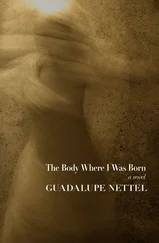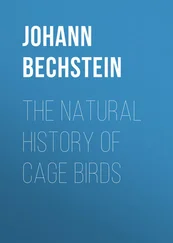Animals develop more quickly than human beings. In the year I spent with the cats I remained practically the same. They, however, changed remarkably. From two scrawny and skittish kittens they turned into teenagers, and then into young adults at the height of their beauty. Hormones began to dominate them as did mine during my period. Milton felt compelled to urinate in the corners and on the houseplants, and the first time Greta went into heat she did so with very little discretion, mewing in high-pitched, frenzied tones, lifting her tail and rubbing her vulva against every furniture edge she could find. It was shocking to see her that way, and I felt sorry for her. The unfulfillment of her desire was as overwhelming as its intensity. Unlike my periods, which lasted about five days, Greta’s seemed to never end. If I was sensitive to her condition, Milton was especially so. He’d circle her, constantly pursue her and try to mount her, to ease once and for all so much frustration. But Greta cruelly rejected his advances and we all suffered for it. Cultures that believe in reincarnation almost always consider it a reward to be born among the male ranks and a disadvantage to reincarnate into the female. Seeing Greta, normally so composed, so overpowered by reproductive hormones made me think that this seemingly misogynistic and primitive theory might not be so absurd. It was then I decided to take my cat to the vet. I wanted to see if it was possible to give her some relief and maybe a contraceptive, so she could go roam the neighborhood rooftops as she pleased. However, what the doctor suggested as a solution for all the evils and dangers my pet faced seemed to me excessively cruel. According to him, the best thing to do was cut out her ovaries, without delay, before she was full grown.
“And leave her sterile forever?” I asked, horrified. “That’s why you became a vet?”
The man remained in guilty silence as I looked at my cat, defenseless on the table. I told myself that neither one of us could choose for her; she had the right to be a mother, at least one time. What other mission was there in animal life, I asked myself, but reproduction? To take away her ovaries was to deny her the chance to fulfill it.
Furious, I walked out of the clinic without explanation. As I was about to get into the taxi the vet appeared in the doorway and shouted:
“Keep her inside, at least for this month. She’s too young for a successful pregnancy.”
I returned to the apartment with the incandescent Greta in her cage. I was not about to let anyone but nature decide her fate and that of her descendants.
Around that time there was a new roommate applicant. A Basque anthropology student who had come to spend three weeks in the city doing his fieldwork. Strangely, neither of the cats — still disturbed by Greta’s overexcitement, I guess — was hostile toward him on the afternoon I had him come by to see the apartment. I figured that three weeks bore no threat to our cohabitation and would bring in extra money in perfect timing with the vacation that was around the corner. And so the next day the Basque moved into the free bedroom. Ander, as he was named, was a boy with a full beard and blue eyes. He was rather shy and didn’t call much attention to himself and spent most of his time studying at the Central Library. During the few hours he spent at home he was polite, helpful even, and from time to time, in our brief conversations, he’d reveal a strange and therefore interesting sense of humor. I remember the night he came home while I was still working and told me he had bought a laughable amount of marijuana for an exorbitant price. In this country, as in so many others, there is the custom of taking advantage of foreigners as much as possible. I felt embarrassed when I heard his account and as recompense offered him two joints I’d had for several months. He cheered up and, extremely appreciative, invited me to smoke on his balcony. Under the effect of cannabis my roommate’s sense of humor emerged uninhibited. After the first three hits he started telling me jokes about the Basques, which cracked me up. We then talked about Mexico and its idiosyncrasies, the apartment, the cats, Greta’s inexorable desire. We exhausted every anecdote, laughing at the poor cat in heat. It was perhaps in her honor that we ended up thrashing about on the mattress I kept for roommates. We had a good time, but it was the only time. In the three weeks of his stay we shared the utilities, groceries, and my stash of weed, but never again a bed.
Rather than suffering because of Ander’s absence, I accepted it placidly and with an unsettling serenity. Greta’s period had ended a few days earlier, and with it the crazed mewing. I finished my thesis by the deadline and turned it in to my advisor for final corrections. I also applied to several graduate programs in history at universities abroad and started planning a vacation I’d spend on some beach on the Pacific coast while waiting for my professional exam. It was around that time I began noticing evident changes in my cat’s body, changes I might have noticed earlier had I not been so busy.
She wasn’t as agile when leaping; her previously tiny nipples gained volume and her torso considerable girth. The news of her pregnancy made me happy for her, but also a little worried because of the vet’s warning. Still, enthusiasm won out. In probably just a few months I’d have an apartment full of playful kittens. I emptied out my bottom dresser drawer and carefully prepared a soft place for them. Greta was meeker and more affectionate toward me than ever, and gratefully accepted my petting and attention. But the happiness was short lived. Fifteen days after Ander left my period didn’t come when it should have and didn’t come late, as I naïvely expected it to. I took a home pregnancy test and prayed, as I was sitting on the toilet, for it to be negative. However, two lines stained the white oval, confirming my fears. In the passing of a few minutes the happy and tender mind-set Greta’s pregnancy had put me in turned into a nightmare. I didn’t have the faintest idea what I should do, not even what I really wanted.
I was in a state of shock for a week, wondering if I should seek advice or decide on my own, if it was wise to tell Ander — with whom I’d hardly had any contact in the past few weeks — wondering, above all, if I wanted and was able to take on motherhood at that point in my life. If I did, my child would probably grow up without a father. That Ander was a foreigner, a fact I’d initially been grateful for and that had encouraged as much closeness as it did distance, now complicated things even more. I barely knew him. I couldn’t even really say what kind of person he was. But then, what kind of person was I? The answers that came to mind were not that flattering. I’d always had a hard time making decisions. It was hard for me even with trivial matters to discard many options in favor of one, and in that moment this very annoying characteristic took on disproportionate dimensions. As I watched Greta dragging her cumbersome body across the hardwood floor, I got a taste of the many forms of helplessness. Like hers, my body was changing with dizzying speed. The fatigue, and especially the nausea, made any activity beyond the most essential — showering, grocery shopping, feeding the cats — an impossible feat. The rest of my time was spent in bed, in the company of Milton, who never stopped purring in my ear. Those were very confusing days.
Every time my mind seemed to finally clear and reveal some hint of a decision, the impulse was crushed by an immense guilt.
One morning an envelope with Princeton letterhead appeared, earlier than I’d imagined it would, beneath my door. Opening the letter I found that not only had I been accepted, I was being considered for a really good grant. Instead of making me happy, the news increased the weight pressing on my shoulders. I quickly got dressed and brought the letter to my advisor’s cubicle to show her. Marisa was surprised by my appearance.
Читать дальше












